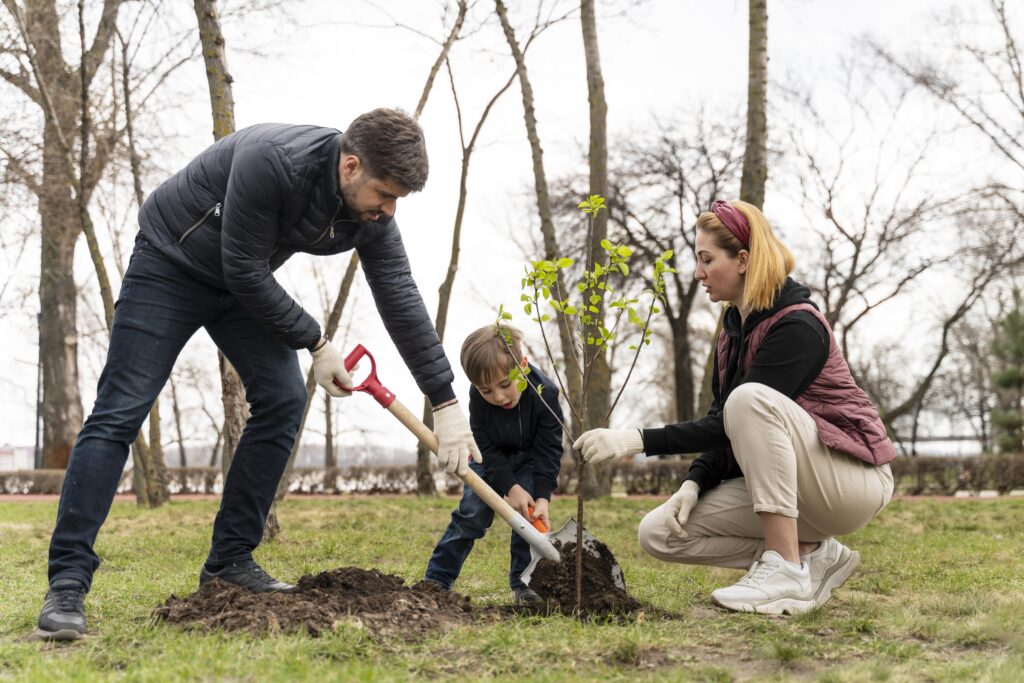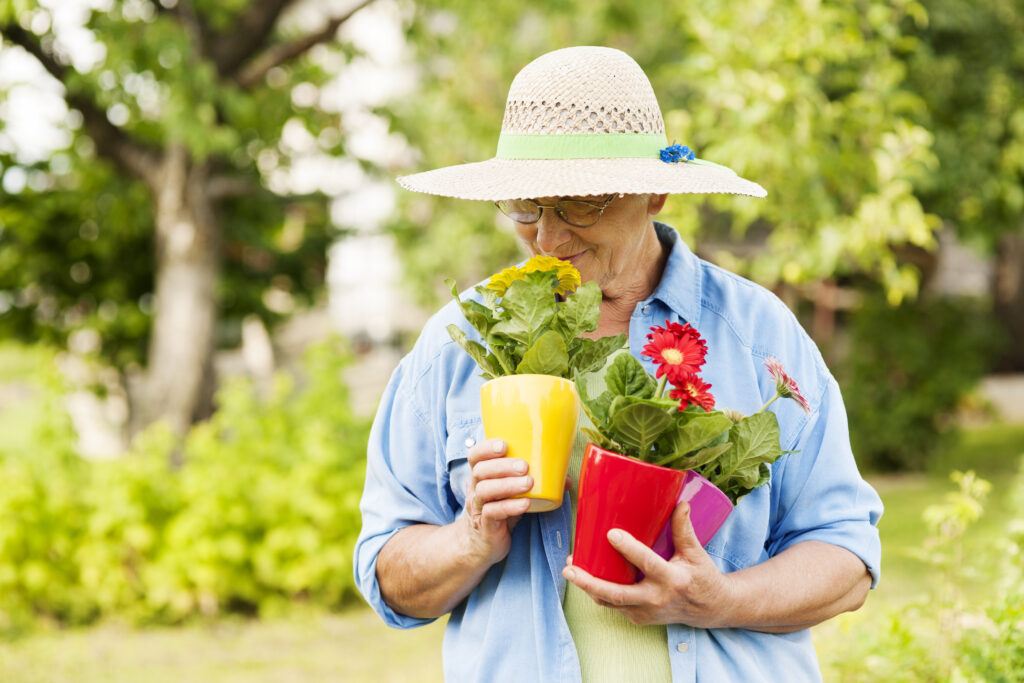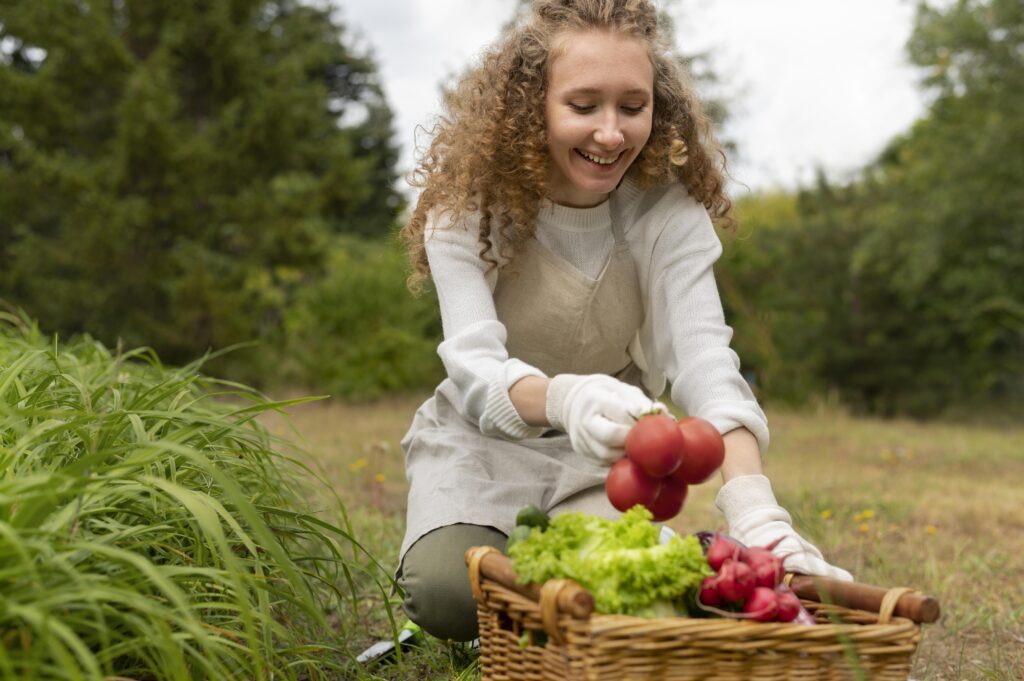The benefits of gardening for physical health are evident in its role as the art and practice of nurturing and cultivating plants, typically in an outdoor setting. It encompasses a wide range of activities, from planting flowers and vegetables to landscaping and maintaining outdoor spaces. Gardening is not only a pastime but also a therapeutic and rewarding outdoor activity that offers numerous benefits for physical health.
A happy existence starts with good physical health. It encompasses various aspects, including fitness, nutrition, and overall well-being. Taking care of our physical health is essential for maintaining a high quality of life, preventing diseases, and ensuring longevity. In this blog post, we will explore how gardening, as an outdoor activity, contributes significantly to improving and maintaining physical health while highlighting the many benefits of gardening for physical health.
Table of Contents
Physical Health Benefits of Gardening
Physical Exercise in Gardening
Gardening is a multifaceted activity that provides a range of physical health benefits. Among these, the benefits of gardening for physical health are most notable when it comes to exercise.
Cardiovascular Workout: Gardening involves a surprising and effective cardiovascular workout. Activities like digging and planting demand continuous movement and engage large muscle groups, which, in turn, elevate your heart rate. This aerobic aspect of gardening not only aids in improving cardiovascular health but also contributes to overall heart well-being.
Strength and Flexibility: Weeding and pruning are integral aspects of gardening that do wonders for your physical health. These activities require significant effort and engage various muscle groups, thereby fostering strength and flexibility. Regular gardening can help build and tone muscles, enhancing your physical prowess over time.
Caloric Burn: Engaging in gardening activities can also lead to the burning of calories. Whether you’re digging, weeding, or tending to plants, you’re expending energy. This caloric burn can be a valuable ally in your efforts for weight management and overall fitness. As a bonus, you get to enjoy the outdoors while achieving your fitness goals.
Incorporating gardening into your routine can provide a well-rounded and enjoyable form of exercise that not only benefits your physical health but also connects you with the beauty of the natural world.

Exposure to Vitamin D
Exposure to sunlight during gardening offers a wealth of benefits of gardening for physical health, particularly in terms of vitamin D.
Sunlight’s Bounty: Sunlight serves as a rich source of vitamin D, a vital nutrient essential for bone health and a robust immune system. When your skin is exposed to sunlight, it triggers the production of vitamin D, which is crucial for the absorption of calcium, maintaining strong bones, and supporting overall health.
Physical Health Benefits: Vitamin D, often referred to as the “sunshine vitamin,” is renowned for its multitude of benefits for physical health. It goes beyond bone health, playing a critical role in regulating mood, reducing inflammation, and supporting cardiovascular health. The positive effects of vitamin D on the immune system are also well-documented, helping the body ward off infections and diseases.
Preventing Deficiency: Regular gardening ensures that you receive an adequate dose of sunlight, significantly reducing the risk of vitamin D deficiency. Inadequate exposure to sunlight can lead to deficiency, which is associated with a range of health problems, including weakened bones, fatigue, and a compromised immune system. Gardening not only provides the opportunity for this essential nutrient but also encourages outdoor activity and well-being.
By incorporating gardening into your daily routine, you not only nurture your plants but also nurture your own physical health through the invaluable exposure to sunlight and the essential benefits of vitamin D.

Stress Reduction Through Gardening
Gardening is a natural remedy for stress, offering a multitude of benefits of gardening for physical health in terms of stress reduction.
Nature’s Calm: Gardening fosters an intrinsic connection with nature that provides a sense of solace and tranquility. The act of being in a garden, surrounded by the beauty of plants and the soothing sounds of the outdoors, naturally calms the mind and reduces stress. It provides a break from the stress of daily life.
Cortisol Control: One of the remarkable benefits of gardening for physical health is its role in lowering cortisol levels, the body’s primary stress hormone. Engaging in outdoor activities like gardening can help mitigate the effects of chronic stress. By reducing cortisol levels, gardening contributes to improved mental well-being and overall physical health.
Heart Harmony: Gardening’s soothing effect extends to your heart health. The reduction in stress achieved through gardening can have a positive impact on blood pressure. Lower stress levels can lead to a healthier heart and reduce the risk of cardiovascular issues. Gardening creates a harmonious environment that benefits both the mind and the body.
Incorporating gardening into your daily life not only beautifies your surroundings but also nurtures your mental and physical well-being. It’s a natural way to combat stress, find peace in nature, and promote heart harmony.

Improved Respiratory Health: Benefits of Gardening for Physical health
Gardening brings a breath of fresh air, quite literally, offering significant benefits of gardening for physical health, especially in terms of improved respiratory health.
Breath of Fresh Air: The garden provides a literal breath of fresh air that contributes to enhanced respiratory health and overall well-being. Being outdoors in a garden allows you to inhale clean, oxygen-rich air, which can have a rejuvenating effect on your respiratory system. The absence of pollutants and the presence of oxygen in a garden can help reduce the risk of respiratory issues.
Indoor Pollution Reduction: Gardening doesn’t stop at the garden gate; it can also positively impact indoor air quality. Indoor plants cultivated through gardening efforts can act as natural air purifiers, effectively reducing indoor air pollution. These plants help remove common indoor pollutants, ensuring that the air you breathe indoors is cleaner and more conducive to good lung health.
Lung Function Boost: Regular exposure to the fresh air in your garden can lead to improved lung function over time. As you breathe in clean, oxygen-rich air, your lungs become more efficient at oxygen exchange. This can result in increased lung capacity and better overall respiratory health.
By nurturing your garden, you not only create a serene outdoor space but also provide yourself with a sanctuary for improved respiratory health. Gardening fosters an environment where you can breathe freely and support your lungs in their essential role in maintaining your physical well-being.

Weight Management and Healthy Eating
Gardening offers a bounty of benefits for physical health, particularly when it comes to weight management and fostering healthier eating habits.
Homegrown Goodness: One of the most rewarding aspects of gardening is the ability to grow your own fruits and vegetables. This empowers you to cultivate a source of fresh, organic produce right in your backyard. By harvesting your homegrown goodness, you not only enjoy tastier and more nutritious fruits and vegetables but also foster healthier eating habits. The convenience of having fresh produce at your fingertips encourages you to incorporate more fruits and vegetables into your daily diet.
Balanced Diet: Gardening for physical health encourages the adoption of a balanced diet. With a variety of fruits, vegetables, and herbs readily available from your garden, you have the opportunity to create meals that are rich in fresh produce and essential nutrients. A diet that includes a wide range of fresh, seasonal items from your garden can provide the vitamins, minerals, and fiber your body needs to thrive.
Weight-Loss Ally: If you’re on a weight loss journey, gardening can be a valuable ally. Regular gardening activities, such as planting, weeding, and harvesting, involve physical effort and calorie expenditure. This contributes to your overall calorie burn and can support your efforts to shed pounds. Furthermore, the nutritious bounty from your garden can be a key component of a healthy lifestyle, aiding in sustainable weight loss and maintenance.
By nurturing your garden, you not only cultivate beautiful plants but also nurture a healthier you. Gardening empowers you to take control of your diet, enjoy fresh, wholesome foods, and engage in physical activity—all of which contribute to your overall well-being and the benefits of gardening for physical health.

Enhanced Mobility and Balance
Gardening for physical health often underestimated, it plays a pivotal role in enhancing mobility and balance, making it a valuable activity for promoting gardening for physical health across all age groups.
Gardening as a Low-Impact Exercise for All Ages:
One of the remarkable aspects of gardening is that it offers a low-impact form of exercise that’s accessible to people of all ages and fitness levels. Unlike high-impact exercises that may strain joints and muscles, gardening provides a gentler yet effective way to stay active. Activities such as digging, planting, and weeding engage major muscle groups without putting excessive stress on your body.
This low-impact nature of gardening is particularly beneficial for individuals who may have physical limitations or joint issues. It allows them to engage in regular physical activity without the risk of overexertion or injury. Children and older adults alike can participate in gardening, reaping the gardening for physical health benefits without fear of strain or discomfort.
Positive Effects on Joint Health and Arthritis:
Gardening can be a game-changer for individuals dealing with joint health issues, including arthritis. The gentle, repetitive movements involved in gardening activities can help improve joint mobility and reduce stiffness. Regular, controlled movements while planting or weeding can promote joint lubrication and flexibility, aiding in the management of conditions like osteoarthritis and rheumatoid arthritis.
Moreover, being outdoors in a garden often means exposure to sunlight, which can further benefit joint health. The vitamin D obtained from sunlight contributes to bone health, potentially alleviating joint pain associated with conditions like osteoporosis.
Improving Balance and Coordination Through Garden Maintenance:
Garden maintenance tasks, such as pruning, trimming, and watering, demand precision and attention to detail. These activities provide an opportunity to enhance balance and coordination. When reaching for branches or tending to delicate plants, you naturally refine your balance skills and improve your hand-eye coordination.
For older individuals, this can be particularly important, as balance and coordination tend to decline with age. Gardening provides an enjoyable way to practice and enhance these skills, reducing the risk of falls and injuries.
Conclusion
Recap of the benefits of gardening for physical health: Gardening is more than just a pastime; it’s a holistic approach to nurturing physical health. From cardiovascular exercise to stress reduction, exposure to sunlight, improved respiratory health, and promoting a balanced diet, gardening offers a wealth of benefits for physical health. It engages your body and mind, helping you stay active, relaxed, and well-nourished.
Encouragement to incorporate gardening into a healthy lifestyle: As we conclude this exploration of the benefits of gardening for physical health, I wholeheartedly encourage you to consider gardening as an integral part of your healthy lifestyle. It’s a fulfilling and enjoyable way to foster physical well-being, connect with nature, and contribute to your overall health. So, grab your gardening tools, embrace the therapeutic joys of gardening, and watch as your physical health flourishes along with your garden. With every seed sown and every plant nurtured, you’re taking steps toward a healthier and more vibrant you. Happy gardening!
FAQs
How does gardening contribute to physical health?
Gardening promotes physical health by providing exercise through activities like digging and planting, while also encouraging fresh air and outdoor movement, enhancing overall well-being.
Can gardening help with weight management?
yes, gardening can aid in weight management by burning calories through activities like weeding and planting, promoting a more active lifestyle.
Does gardening improve flexibility and mobility?
Yes, gardening can enhance flexibility and mobility as it involves various bending, stretching, and reaching movements, helping to maintain and improve physical flexibility.
What are the benefits of exposure to natural sunlight while gardening?
Exposure to natural sunlight while gardening boosts vitamin D production, which supports bone health and mood regulation, while also promoting overall well-being.
Are there any precautions for older gardeners?
Older gardeners should take precautions to avoid overexertion, use proper tools to reduce strain, and stay hydrated, as their bodies may be more susceptible to injuries and dehydration.
Read our fresh articles:
benefits of gardening for children’s development
benefits of school gardening
inner-harmony-and-improved-wellness
the-secrets-of-gardening
discover the benefits of green therapy
right location for a garden
